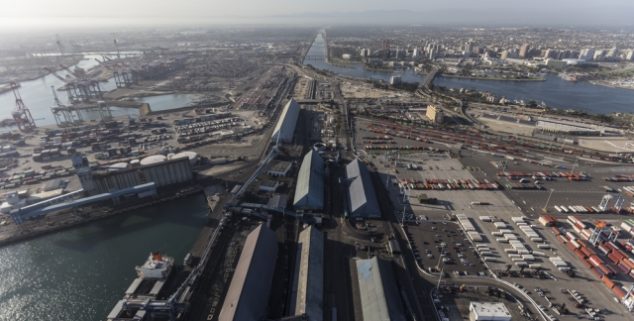Opinion
In recent weeks, the California Air Resources Board (CARB) has kicked off the process to finalize details of the state’s cap-and-trade program with public workshops held around the state. The usual suspects, from environmental advocates to industry representatives have packed hearing rooms waiting for their chance to chime in on proposed regulations.
While some details remain to be seen, two things are abundantly clear; California’s new cap-and-trade program will help facilitate the reduction of greenhouse gas emissions (a good thing), and the program will have far-reaching impacts for every sector of the state’s economy (not so good).
According the CARB’s own estimates, by 2030, the net effect of these new standards will result in thousands of fewer jobs, a lower GDP and less personal income for Californians.
In July, Governor Brown signed Assembly Bill 398, which requires that California’s greenhouse gas emissions be reduced to 40% below 1990 levels by 2030. The bill also established this new cap-and-trade program as a way to reach these goals.
Inevitably, some businesses will not withstand these new onerous regulations.
It is now the CARB’s job to figure out the details of implementation. One of their recommendations is to continue to provide industry assistance for businesses as they work to comply with these stricter requirements. Not surprisingly, some extremists are taking issue with this critical part of cap-and-trade even though it has been a part pf the program since the beginning.
Businesses such as farmers, dairy producers and oil producers are urgently working to make the needed technical upgrades. Inevitably, some businesses will not withstand these new onerous regulations. The California Hispanic Chamber of Commerce believes that like many before them, they will find that California is not a sustainable place to do business.
As the vast majority of other states don’t have a carbon price associated with goods or services that businesses provide, there will be plenty of states ready to welcome these job providers with cost-saving offers and open arms. For those who stay, the only option to adapt is to increase prices on consumers.
To help these covered businesses comply, the CARB is weighing industry assistance levels for the program’s upcoming third compliance period (2018-2021). The assistance being discussed will help some, but it will amount to a fraction of overall costs for most of the businesses.
The scope and size of the greenhouse gas emission reduction requirements under the state’s climate change laws are so burdensome, that even CARB’s proposed industry assistance will barely put a dent in the overall costs businesses will incur while working to reach compliance.
The bottom line is that California lawmakers have decided that we will lead the way on the issue of greenhouse gas emission reduction. And the industry is by and large on board, doing its best to comply while still keeping jobs in the state and limiting negative impacts on consumers.
Providing industry assistance in the third compliance period is reasonable and necessary. It is, of course, getting push back from the usual crowd of extremists who are either lacking a firm understanding of the scope of this policy change or how businesses function. Unfortunately, some critics seem less interested in meeting the new environmental standards than punishing job providers and businesses.
Third compliance period assistance was not only (reportedly) part of AB 398 negotiations, it’s still a drop in the bucket in relation to how much this will cost businesses of every size in California.
This assistance for the third compliance period is a modest step to help businesses as they work to meet these new regulations, the toughest standards in the nation while protecting consumers and the economy.
—
Ed’s Note: Julian Canete is the President and CEO of California Hispanic Chamber of Commerce.
###
Want to see more stories like this? Sign up for The Roundup,
the free daily newsletter about California politics from the editors of Capitol Weekly.
Stay up to date on the news you need to know.
Sign up below, then look for a confirmation email in your inbox.
 An aerial view of the Port of Long Beach, a critical part of California's industrial infrastructure.(Photo: trekandshoot, via Shutterstock)
An aerial view of the Port of Long Beach, a critical part of California's industrial infrastructure.(Photo: trekandshoot, via Shutterstock)
Leave a Reply